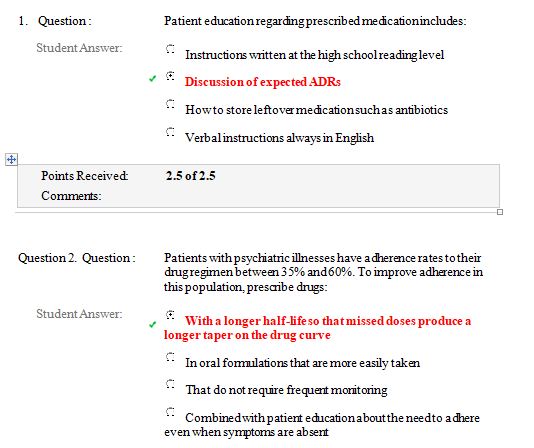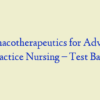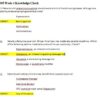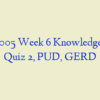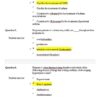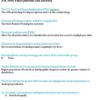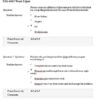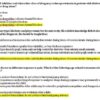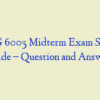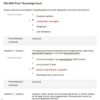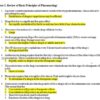Description
NSG 6005 Week 2 Knowledge Check with Answers
- Patient education regarding prescribed medication includes:
- Patients with psychiatric illnesses have adherence rates to their drug regimen between 35% and 60%. To improve adherence in this population, prescribe drugs:
- A twenty-four-year-old male received multiple fractures in a motor vehicle accident that required significant amounts of opioid medication to treat his pain. He is at risk for Type __ ADR when he no longer requires the opioids.
- An advantage of prescribing a sublingual medication is that the medication is:
- The time required for the amount of drug in the body to decrease by 50% is called:
- The first step in the prescribing process according to the World Health Organization is:
- The type of ADR that is the result of an …..but otherwise normal pharmacological action of a drug …in the usual therapeutic doses is:
- Pharmacokinetic factors that affect prescribing include:
- The role of the nurse practitioner in the use of herbal medication is to:
- Drugs that have a significant first-pass effect:
- Infants and young children are at higher risk of ADRs due to:
- Steady state is:
- Which one of the following statements about bioavailability is true?
- Genetic polymorphisms account for differences in metabolism, including:
- Nonadherence is especially common in drugs that treat asymptomatic conditions, such as hypertension. One way to reduce the likelihood of nonadherence to these drugs is to prescribe a drug that:
- Warfarin resistance may be seen in patients with VCORC1 mutation, leading to nsg 6005 week 2 quiz
- Herbs and supplements are …… for safety by the FDA.
- A cytotoxic hypersensitivity reaction
- Carbamazepine has a black box warning recommending testing for the HLA-B*1502 allele in patients with Asian ancestry prior to starting therapy due to:
- A patient’s nutritional intake and lab work reflect hypoalbuminemia. This is critical to prescribing because:

